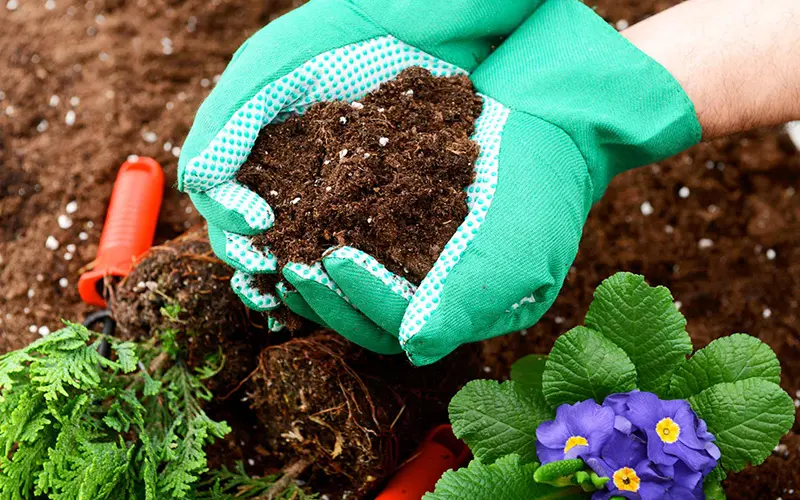Fertilizers play a crucial role in ensuring healthy plant growth and optimal crop yield. However, selecting the right fertilizer for your soil can be overwhelming due to the variety of options available.
This guide will walk you through understanding your soils needs, choosing the correct fertilizer type, and ensuring your plants thrive.
Introduction: Why Fertilizer Matters
Plants require essential nutrients to grow, just like humans need a balanced diet. While soil naturally contains nutrients, it may lack the specific minerals needed for your plants to flourish.
Fertilizers supplement these deficiencies, providing nutrients like nitrogen, phosphorus, and potassium. Choosing the right fertilizer ensures your plants grow healthier, stronger, and more productive. But where do you begin?
Step 1: Understand Your Soil
Before buying fertilizer, its essential to understand your soils composition. Conduct a soil test, which measures pH levels and nutrient content.
This test will identify whether your soil is acidic, neutral, or alkaline and reveal deficiencies in essential nutrients. Soil test kits are widely available at gardening stores or through agricultural extension services.
Step 2: Know the Types of Fertilizers
Fertilizers come in various forms, each suited for specific needs:
- Nitrogen-Based Fertilizers: Ideal for leafy vegetables like lettuce and spinach. Nitrogen promotes healthy foliage growth.
- Phosphorus-Based Fertilizers: Essential for root development and flowering plants like tomatoes and roses. Phosphorus encourages strong roots and vibrant blooms.
- Potassium-Based Fertilizers: Useful for overall plant health and disease resistance. Crops like potatoes and bananas benefit significantly from potassium.
Additionally, fertilizers are available in two main forms:
- Organic Fertilizers: Made from natural sources such as compost, manure, and bone meal. These improve soil structure and long-term fertility.
- Synthetic Fertilizers: Chemically manufactured to provide precise nutrient ratios for quick results.
Step 3: Match Fertilizer to Plant Needs
Each plant has unique nutritional requirements. When selecting fertilizer:
- Look for the NPK ratio (Nitrogen-Phosphorus-Potassium) on the packaging. For example, a 10-10-10 ratio provides equal amounts of all three nutrients.
- Consider slow-release options for consistent feeding or liquid fertilizers for quick absorption.
- Use balanced fertilizers for general gardening or specialized products tailored to specific crops.
For further reading, check out : Affordable Fertilizers for Small Farms
Conclusion: Simplify Your Choice with CK Fertilizer
Selecting the right fertilizer doesnt have to be complicated. CK Fertilizer offers a range of high-quality, easy-to-use products designed to meet various soil and plant needs
. From balanced blends to specialized formulas, CK Fertilizer ensures optimal plant growth while improving soil health. Trusted by gardeners and farmers alike, CK Fertilizer is your partner in cultivating thriving plants.
FAQs
1. How often should I fertilize my plants?
The frequency depends on the fertilizer type and plant needs. Most plants benefit from fertilization every 4-6 weeks during the growing season. Always follow the product instructions for best results.
2. Can I use the same fertilizer for all my plants?
While a balanced fertilizer works for many plants, specific crops like fruiting or flowering plants often need targeted nutrients for optimal growth. Tailoring your fertilizer choice ensures better outcomes.
3. Is over-fertilizing harmful?
Yes, over-fertilizing can harm plants by causing nutrient imbalances, burning roots, and polluting nearby water sources. Always apply fertilizers in the recommended amounts and intervals.
The frequency depends on the fertilizer type and plant needs. Most plants benefit from fertilization every 4-6 weeks during the growing season. Always follow the product instructions for best results.
While a balanced fertilizer works for many plants, specific crops like fruiting or flowering plants often need targeted nutrients for optimal growth. Tailoring your fertilizer choice ensures better outcomes.
Yes, over-fertilizing can harm plants by causing nutrient imbalances, burning roots, and polluting nearby water sources. Always apply fertilizers in the recommended amounts and intervals.
